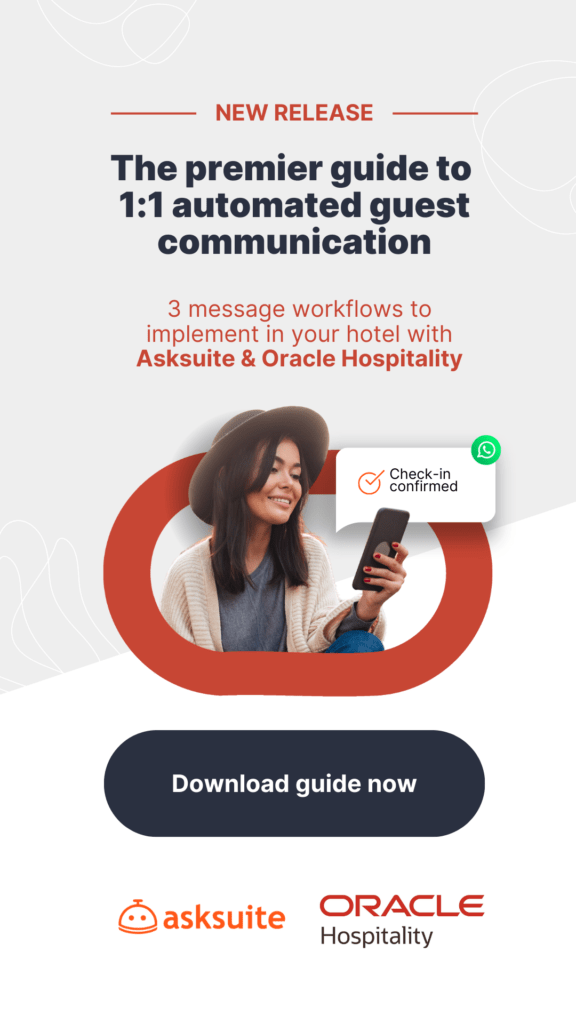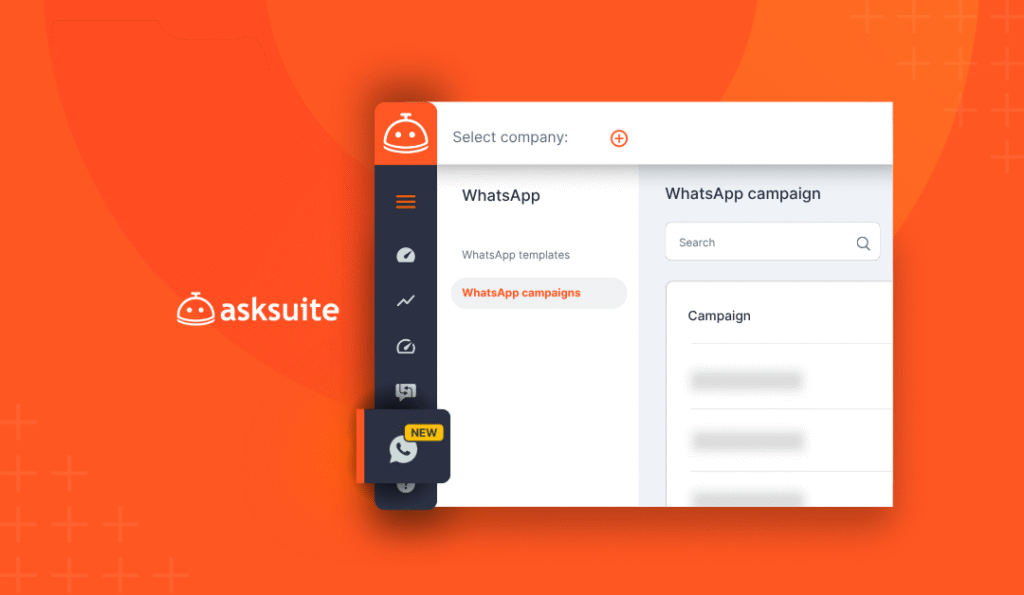Hotel management refers to the comprehensive administration and coordination of all activities and operations within a hotel or hospitality establishment.
Achieving success in the hotel industry involves more than ambiance and high-quality service; it requires productive hotel management that ensures operational efficiency. From maintaining spotless rooms to coordinating bookings, guaranteeing customer loyalty, handling sales and marketing, managing a hotel is truly complex.
As the travel & tourism demand grows year after year, dealing with hospitality operations becomes even more challenging as the responsibilities increase as well. Statista projects a market volume of more than USD $1 billion by 2028. Is your hotel ready to expand? Are you strategizing hotel management to make the most of this opportunity?
If you’re interested in streamlining the most impactful processes in a hotel, improving the guest experience, and driving revenue, keep on reading!
What is hotel management?
Hotel management encompasses the day-to-day operations and strategic planning that keep a hotel running smoothly and profitably. It covers everything from interaction with potential guests to back-end operations, ensuring that your hotel offers an enjoyable stay while optimizing the financial performance.
Here are some essential components of hotel management:
- Traveler & Guest Experience
- Budget & Revenue
- Sales & Marketing
- Human Resources
- Facilities & Maintenance
- Technology & Systems
- Compliance & Safety
Each of these areas requires dedicated planning to reach the hotel’s goals, such as generating profits and being results-oriented. Such business complexity makes the hotel management a multifaceted and dynamic field essential to the overall success of your hotel.
It’s no use if your hotel is the best in town but doesn’t rely on effective management, right? To support your property in this challenge, we’ve gathered 5 powerful strategies to take hotel management to the next level.
Check them out!
5 strategies to streamline hotel management
To thrive in the competitive hospitality industry, hotel managers must adopt impactful actions that build fine-tuned operations while delivering exceptional guest experiences and boosting revenue.
With all these aspects working together, you can maximize the hotel’s performance and increase the chances to achieve outstanding results. Here are 5 key strategies to consider for optimizing your hotel operations.
1. Embrace hospitality-tech solutions
Tech tools can significantly enhance hotel management in many areas, such as:
- Answering travelers’ FAQs 24/7;
- Easing the booking process;
- Centralizing interactions on one platform;
- Collecting guests’ data in a user-friendly system;
- Consolidating the hotel’s management info.
AI and automation offer valuable benefits, like freeing up staff from repetitive tasks and eliminating the need for a 24/7 multilingual reservation team— for instance, AI Reservation Agents interact with travelers immediately and in their language. The experience provided is also refined: as interactions with travelers and guests are centralized, your hotel offers a continued conversation across all communication channels.
A solid tech stack, including a Revenue Management System (RMS) for dynamic pricing, a Property Management System (PMS) for operational control, and a Customer Relationship Management (CRM) system for managing guest profiles, creates the perfect blend of integrated operations.
2. Streamline the Booking Process
A smooth reservation process directly impacts occupancy rates. Adopting an easy-to-use booking engine, along with a well-trained staff to assist when needed, ensures guest satisfaction from the outset.
Did you know? Asksuite’s AI Reservation Agent seamlessly integrates with booking engines, allowing potential guests to finalize bookings intuitively. It also gives more time for your reservation team to deal with more complex situations, like groups and major events.
A user-friendly system can efficiently manage availability, pricing, and reservations while minimizing overbooking. Tech that provides insights into guest behavior can further enhance the booking experience with personalized offers. Every step, from the initial search to payment, should be smooth and secure, helping guests book confidently.
3. Optimize Sales Operations
Sales efforts are vital to a hotel’s success. Setting clear, attainable targets and implementing assertive upselling and cross-selling techniques can drive significant revenue growth.
Establishing realistic, performance-based goals keeps the team focused and aligned with business objectives. Upselling—such as room upgrades—and cross-selling, like partnerships with local attractions, enrich the guest experience while exploring new revenue streams.
Beyond traditional sales tactics, a comprehensive marketing approach that identifies target audiences, tells a compelling brand story, and leverages digital channels, like social media, helps boost the hotel’s online presence, attract more direct bookings, and strengthen guest loyalty.
4. Follow your hotel’s SLA closely
Measuring the efficiency of a reservation team in the hospitality industry through Service Level Agreements (SLAs) is crucial for ensuring consistent and high-quality service and mastering hotel management.
SLAs set clear expectations regarding response times, booking accuracy, and customer satisfaction, helping teams stay aligned with the hotel’s overall goals. By tracking performance, hotel managers can identify areas for improvement, streamline operations, and reduce bottlenecks that may impact the guest experience.
What’s more, having SLAs in place fosters accountability and motivates the team to maintain high standards, ultimately contributing to increased guest loyalty and higher revenue.
Did you know? Asksuite just released the SLA Dashboard to transform the way you manage your hotel! The tool is hospitality-tailored and customizable with real-time updates. The SLA Dashboard closely monitors key metrics to improve efficiency. Want to know how Asksuite’s solutions can support your hotel’s growth? Talk to a specialist today!

5. Elevate the Guest Experience
Personalized communication and genuine hospitality distinguish your hotel from the competition. Leveraging guest data can tailor services, from pre-arrival preferences to customized offers. Personal touches, like having the guest’s favorite drink ready, make them feel valued and appreciated.
Training staff with a passion for hospitality ensures a guest-first approach, turning satisfied customers into loyal advocates. Data analysis also provides insights into valuable feedback, pricing strategies, and operational efficiencies, helping managers make data-driven decisions that optimize both service quality and profitability.
Asksuite also equips your hotel with a hospitality-driven tool so 1:1 automated communication throughout the guest’s entire journey becomes a reality. Want to leverage personalized communication without overwhelming your staff?
Learn how in our premier guide:

What are the essential skills of hotel managers?
Effective hotel management requires strong interpersonal skills, adaptability, and a commitment to continuous improvement, helping managers inspire their teams and foster a positive workplace.
- Adaptability: In the dynamic hospitality industry, managers must navigate unexpected challenges with creativity and resilience, maintaining smooth operations even in high-stress situations.
- Interpersonal & Communication Skills: Leading by example and fostering an open, supportive environment builds trust and motivates staff to deliver exceptional service.
- Work Ethic & Continuous Learning: A dedication to hard work and staying updated on new technologies and trends sets a high standard, empowering managers and their teams to gain a competitive edge.
By implementing these strategies and developing such skills, hotel managers can create a robust, guest-centered approach that supports team success and sustainable growth. From technology and marketing to staff development, every aspect contributes to shaping a hotel that guests love and recommend.
This blog post was originally written on July 20, 2023 by Evelin Lima and updated on November 9, 2024 by Asksuite’s team.





